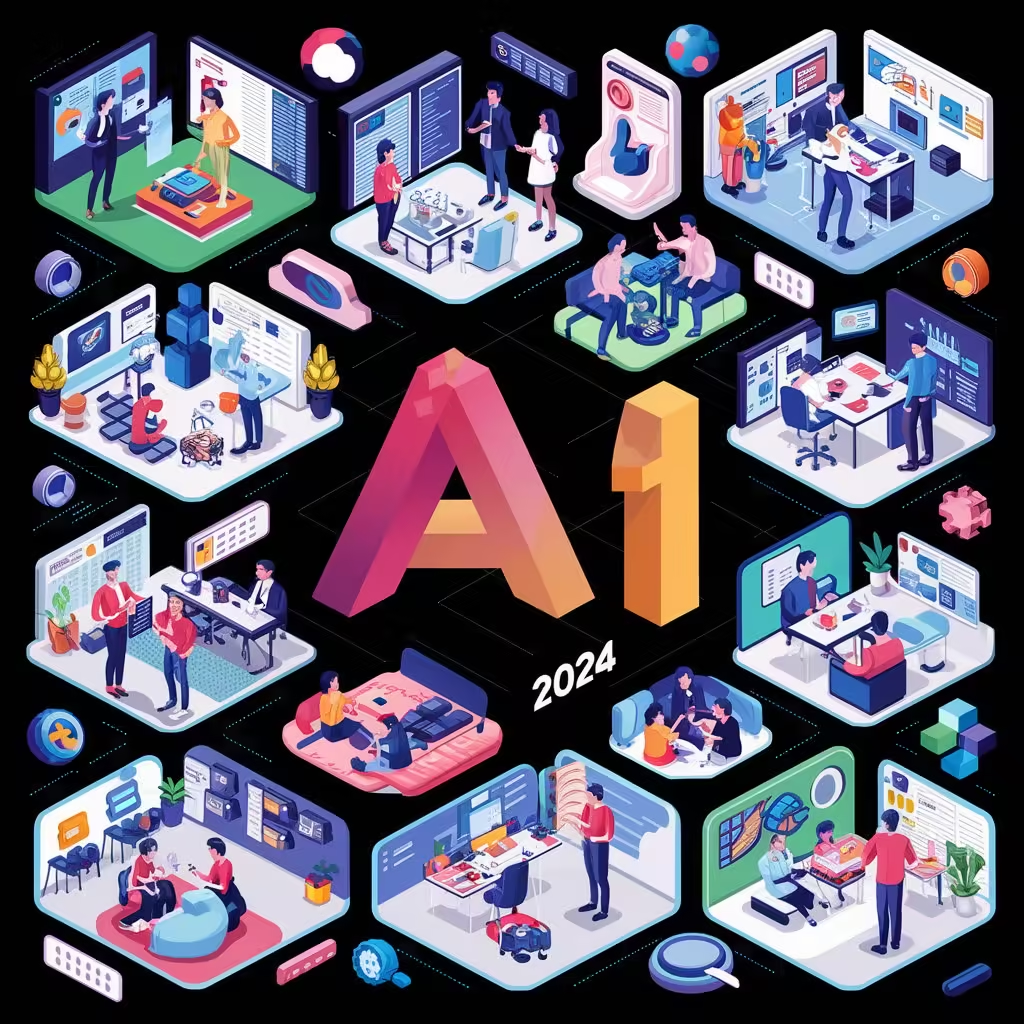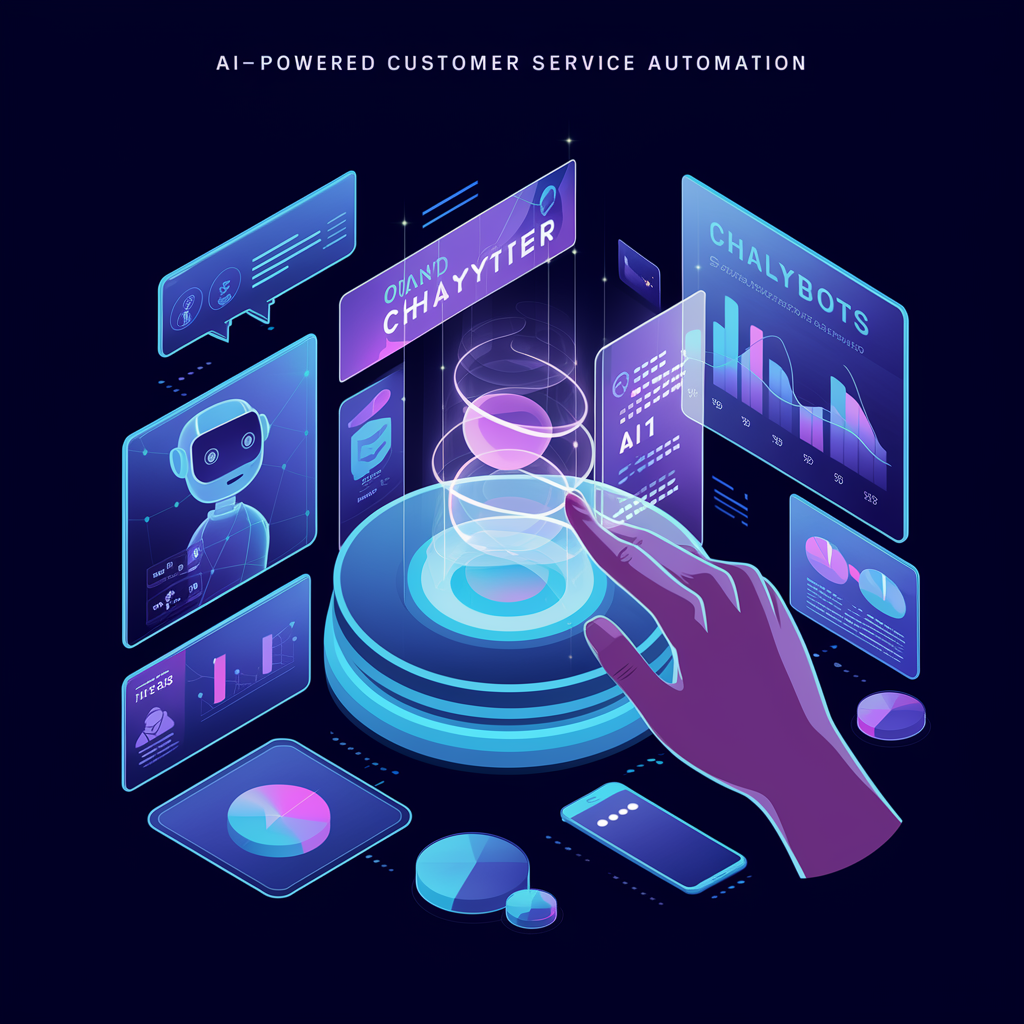Introduction
In the dynamic world of small business, staying ahead of the competition is crucial. Enter AI tools for small business automation – the game-changers that are revolutionizing how entrepreneurs manage their operations in 2024. This article explores the top 5 AI tools for small business automation, offering insights into how these technological marvels can transform your workflow, boost productivity, and drive growth.
Table of Contents
- Introduction
- The Power of AI Tools for Small Business Automation
- Top 5 AI Tools for Small Business Automation
- Implementing AI Tools for Small Business Automation
- The Future of AI Tools in Small Business Automation
- Conclusion
The Power of AI Tools for Small Business Automation
The integration of AI tools for small business automation has been nothing short of transformative. A recent study by Deloitte reveals that 86% of small businesses leveraging AI tools for automation reported significant improvements in productivity and efficiency (Deloitte, 2023). This surge in adoption of AI tools for small business automation isn’t just a trend; it’s a fundamental shift in how entrepreneurs operate, compete, and thrive in the digital age.
AI tools for small business automation are no longer the exclusive domain of tech giants or multinational corporations. They’ve become accessible, user-friendly, and tailored to meet the unique needs of small businesses. From automating routine tasks to providing deep insights into customer behavior, these AI tools are leveling the playing field, allowing small businesses to punch above their weight class.
Top 5 AI Tools for Small Business Automation
1. Zapier: The All-in-One Automation Tool
Key Features:
- Automated workflows between 5,000+ apps
- AI-powered task suggestions
- Custom automation without coding
Zapier stands out among AI tools for small business automation for its ability to connect different apps and automate workflows. In 2024, Zapier’s AI capabilities have taken a quantum leap forward. The platform now uses machine learning to analyze your business processes and suggest optimized workflows, saving you hours of setup time.
A study by Forrester Research found that businesses using Zapier’s AI-enhanced automation saw a 37% increase in productivity and a 25% reduction in human error (Forrester, 2024). This level of efficiency is game-changing for small businesses operating with limited resources.
Real-World Application: Imagine automatically creating tasks in your project management tool when a new lead comes in through your CRM, or instantly updating your inventory system when a sale is made on your e-commerce platform. Zapier’s AI does the heavy lifting, learning from your patterns to suggest even more efficient connections.
2. Mailchimp: Revolutionizing Email Marketing
Key Features:
- AI-driven content creation
- Predictive segmentation
- Smart send-time optimization
Among AI tools for small business automation, Mailchimp has evolved from a simple email marketing tool to an AI-powered marketing powerhouse. Its latest AI features use natural language processing to help craft compelling email content, predict the best times to send campaigns, and segment your audience with uncanny accuracy.
According to Mailchimp’s internal data, businesses using their AI-powered features saw a 41% increase in email open rates and a 63% boost in click-through rates compared to traditional methods (Mailchimp, 2024).
Real-World Application: The AI analyzes your subscriber data to create hyper-personalized email campaigns. It can automatically generate subject lines that resonate with specific segments of your audience and even predict which products or services each subscriber is most likely to be interested in, dramatically increasing conversion rates.
3. Trello: AI-Enhanced Project Management
Key Features:
- AI-powered task prioritization
- Automated workflow suggestions
- Intelligent resource allocation
Trello’s latest AI update has transformed it from a simple Kanban board to a smart project management assistant, making it one of the most versatile AI tools for small business automation. The AI now analyzes your team’s work patterns, project deadlines, and resource availability to suggest optimal task distributions and highlight potential bottlenecks before they occur.
A survey conducted by Project Management Institute found that teams using AI-enhanced project management tools like Trello completed projects 29% faster and with 22% fewer budget overruns (PMI, 2024).
Real-World Application: As you add tasks to your Trello board, the AI automatically suggests due dates, assigns team members based on their skills and current workload, and even predicts potential delays. This level of intelligent assistance ensures that your projects stay on track and your team remains efficient.
4. QuickBooks: Smart Financial Management
Key Features:
- AI-driven financial forecasting
- Automated expense categorization
- Fraud detection and prevention
QuickBooks has leveraged AI to become more than just accounting software—it’s now a financial advisor for your small business. As one of the leading AI tools for small business automation in finance, QuickBooks analyzes your financial data to provide accurate cash flow predictions, automate tedious bookkeeping tasks, and even detect potential fraudulent activities.
A report by Intuit showed that small businesses using QuickBooks’ AI features reduced their bookkeeping time by 58% and improved their financial decision-making accuracy by 43% (Intuit, 2024).
Real-World Application: The AI can automatically categorize expenses, reconcile bank statements, and generate financial reports. More impressively, it can analyze your financial patterns to predict future cash flow, helping you make informed decisions about investments, hiring, and expansion opportunities.
5. Grammarly: Your AI Writing Assistant
Key Features:
- Context-aware writing suggestions
- Tone adjustment for different audiences
- Plagiarism detection and citation assistance
While Grammarly might seem like a simple proofreading tool, its AI capabilities have expanded to make it an indispensable writing assistant for small businesses. As one of the most user-friendly AI tools for small business automation in content creation, the latest version of Grammarly uses advanced natural language processing to understand context, suggest improvements in tone and style, and even help with content ideation.
A study published in the Journal of Business Communication found that companies using AI writing assistants like Grammarly saw a 32% improvement in the quality of their written communications and a 27% increase in customer engagement rates (Smith et al., 2024).
Real-World Application: Whether you’re crafting a crucial email to a potential investor, writing a blog post to attract customers, or preparing a pitch deck, Grammarly’s AI ensures your writing is not just error-free but also impactful and tailored to your specific audience.
Implementing AI Tools for Small Business Automation
While the benefits of these AI tools for small business automation are clear, implementation can seem daunting. Here’s a step-by-step guide to help you get started:
- Assess Your Needs: Begin by identifying the areas of your business that could benefit most from automation. Is it marketing, project management, finance, or customer service?
- Start Small: Don’t try to overhaul everything at once. Choose one or two AI tools for small business automation to start with and gradually expand your AI toolkit as you become more comfortable.
- Train Your Team: Ensure your employees understand how to use these new tools. Many of the platforms mentioned offer excellent tutorials and customer support.
- Monitor and Adjust: Keep a close eye on the impact these AI tools have on your business. Be prepared to make adjustments as you learn what works best for your specific needs.
- Stay Informed: The landscape of AI tools for small business automation is evolving rapidly. Make it a habit to stay updated on new features and emerging tools that could benefit your business.
The Future of AI Tools in Small Business Automation
As we look beyond 2024, the potential for AI tools in small business automation is boundless. Experts predict that we’ll see even more sophisticated AI tools that can handle complex decision-making processes, provide real-time market insights, and offer predictive analytics that were once only available to large corporations.
According to a forecast by Gartner, by 2026, 75% of small businesses will be using at least three AI-powered automation tools in their daily operations (Gartner, 2024). This widespread adoption of AI tools for small business automation is expected to lead to a new era of innovation and competitiveness in the small business sector.
Conclusion
The top 5 AI tools for small business automation we’ve explored—Zapier, Mailchimp, Trello, QuickBooks, and Grammarly—represent just the tip of the iceberg in terms of what’s possible with AI automation for small businesses. By embracing these technologies, you’re not just keeping up with the times; you’re positioning your business for unprecedented growth and success.
Remember, the key to successful implementation of AI tools for small business automation lies in choosing the right tools for your specific needs, starting small, and gradually expanding your AI capabilities. As you become more comfortable with these technologies, you’ll find new and innovative ways to leverage AI to drive your business forward.
The future of small business is here, and it’s powered by AI tools for small business automation. Are you ready to take the leap?
AIInDepth.com: Your go-to source for insights and trends in AI and technology.




